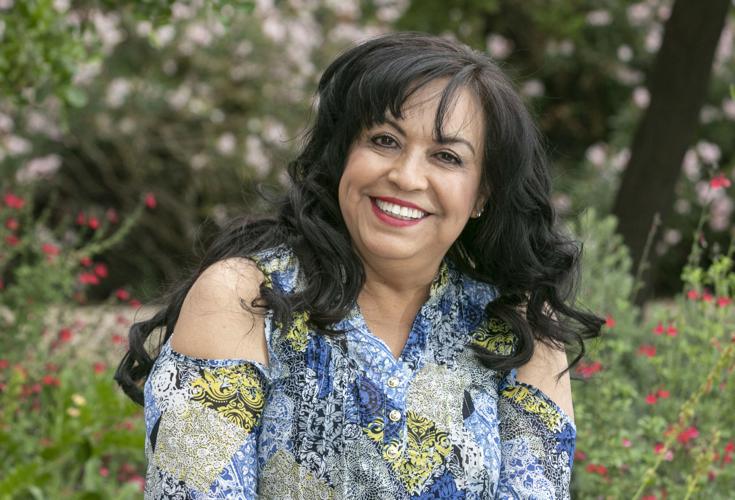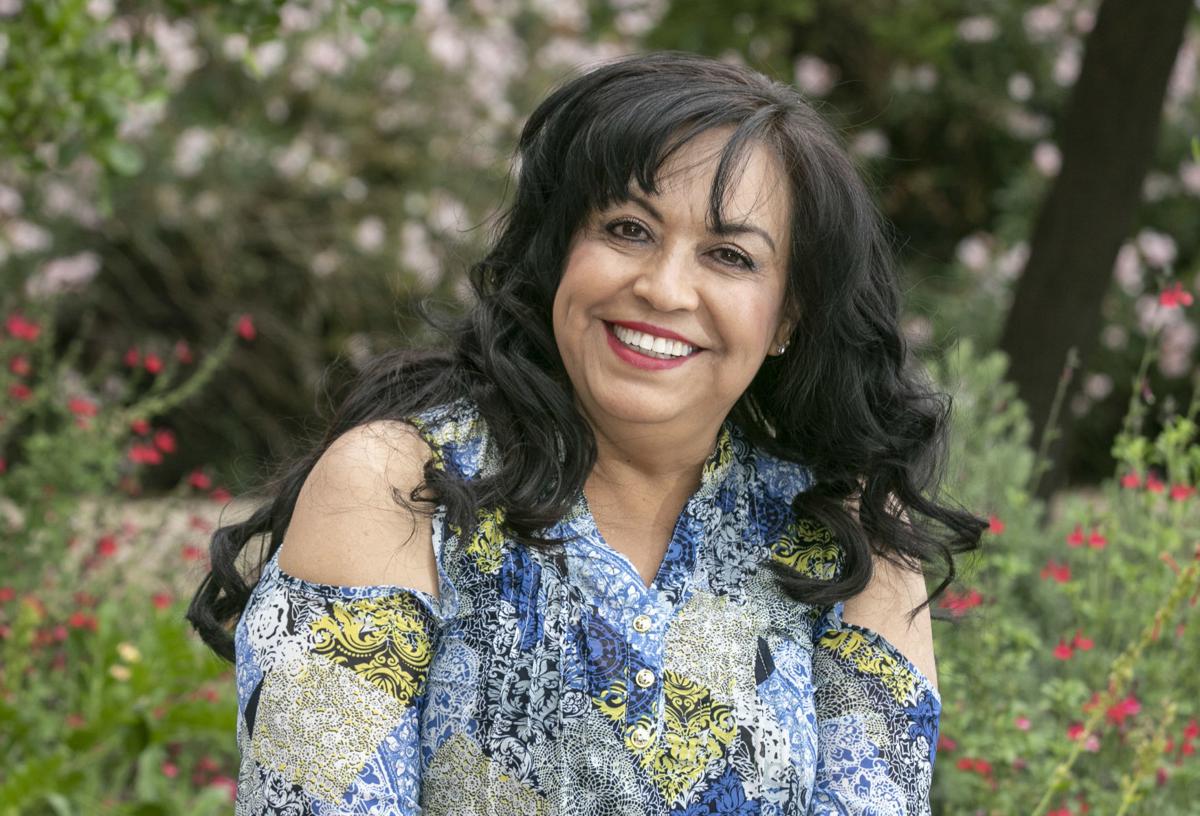Alma Aguirre-Cruz said she hopes that in death there will come knowledge.
Aguirre-Cruz, 59, said she has made plans to donate her body upon death to the University of Arizona’s Willed Body Program, one of two in Tucson that accept bodies that are then used for medical purposes.
“I want to donate my body to help medical students learn about the anatomy, and anything else they can learn by studying my remains,” Aguirre-Cruz, the UA Med-Start Health Careers Program coordinator, said about the university’s not-for-profit program that deals in whole-body donation.
She proudly shows her donor card for the anatomical educational program that has existed at the university since 1967, when the College of Medicine opened.
In addition to the UA’s program, the Southwest Institute for Bio-Advancement in Tucson, or SWIBA, is a nontransplant anatomical tissue donation organization for those interested in donating their body for medical education and research.
Aguirre-Cruz said her family knows her wishes about being a body donor to the UA’s program. Her decision “is an open subject.”
“I want to live to be 128 years old,” said Aguirre-Cruz with a boisterous laugh. “Right now I don’t have any illnesses in my body, but I don’t know what will happen with my health in the future.”
She explained that cancer runs in the family on her mother’s side. Her mother was not a smoker, but died of lung cancer. Her grandmother died of liver cancer. An aunt died of stomach cancer. Two uncles died of cancerous growths, each under their arm, and a third uncle died of lung cancer.
As a teenager, Aguirre-Cruz worked alongside her family in the fields in Willcox picking cotton and chile, pulling onions and picking apples. She remembers when a crop-dusting plane would fly over the fields and fumigate the plants with pesticides.
Aguirre-Cruz said maybe medical students can figure out answers that will lead to cures in the future by studying her body.
“That would be awesome,” she said.

The Southwest Institute for Bio-Advancement, 4541 S. Butterfield Drive, is in the process of building a surgical training facility at its Tucson headquarters.
Program differences
There are differences in the UA and SWIBA programs, most notbably that the latter is a private, for-profit business that opened here in 2010.
SWIBA is a nationally accredited tissue bank that works with universities, hospitals and surgical-training facilities in the United States and internationally, said Allison Howell, a company spokeswoman.
In addition to providing specimens for institutions, SWIBA also provides specific tissues for medical training and research. Depending on the circumstances, it also accepts donor bodies that have undergone an autopsy and organ donation for transplants.
Andrew Benavidez praised the institute, describing the staff as “very caring and supportive, upfront, honest and open.”
He recalled his older brother’s traumatic death in April, eight days after being struck by a vehicle while he was in a crosswalk in midtown.
His brother Daniel, 49, a former communications director for the Pima County Attorney’s Office, believed in organ donation for medical research, and also in the benefits of an organ transplant to help another person live.
If that was not doable, said Andrew Benavidez, his brother made it clear that he wanted to donate his organs and tissue for medical research and education. Daniel had researched SWIBA, and Andrew Benavidez knew about the institute through his work in hospice.
There is no cost to family members for the donation process, and the institute pays for transportation of the body within the state, cremation and provides the family with a death certificate. The Benavidez family received Daniel’s cremains soon after his death and they held a service for their loved one.

SWIBA is a whole-body donation organization specializing in medical education and research. It is a for-profit company, unlike the UA’s nonprofit program.
Teaching anatomy
For Aguirre-Cruz, if she is accepted into the UA program at the time of death, her cremains will not be returned to her family, but rather scattered by personnel of the Willed Body Program in a professional and dignified manner in Arizona mountains. The ashes of each donor is scattered individually. The Aguirre-Cruz family will receive information about how they can obtain a certified copy of her death certificate.
The program is under the College of Medicine’s Department of Cellular & Molecular Medicine and follows state and federal guidelines for handling human remains.
Most donors’ cadavers will be used to teach anatomy, but they can also teach continuing education courses for physicians and surgeons. One cadaver can be preserved and used by first-year medical students for nine months as they learn about the body and pathologies in the anatomy lab, said Jean Wilson, professor of cellular and molecular medicine at the UA College of Medicine and the director of the Willed Body Program.
In the UA’s program, the donor’s body will not be accepted at the time of death if organs or tissue are removed by another donation program, except for the removal of the corneas. Other restrictions that may preclude acceptance of a body include obesity, an autopsy or major trauma, a recent surgery, suicide, severe edema, or having communicable diseases at the time of death.
Programs the UA works with includes the UA College of Medicine Phoenix campus, Arizona State University, Northern Arizona University and the A.T. Still University School of Osteopathic Medicine in the Phoenix area.
About 400 medical students at the UA College of Medicine learn from cadavers in the anatomy laboratory during a year, and residents in training use the lab to refresh their skills and knowledge, said Wilson.
Usually fewer than a dozen surgeons use the lab to practice new techniques and learn to use new medical devices.
“Getting a three-dimensional perspective of anatomy is so important to students,” said Wilson. “They will be imaging their patients and they need to know where things are because each patient is different anatomically. The human body is not built like a textbook.”
“Medical students see lots of pathologies and that is really important,” she explained of their examination of cadavers in the laboratory.
“Students are always fascinated, and it may encourage them to go into research. They may become a cancer researcher,” said Wilson of Aguirre-Cruz’s sharing about the history of cancer in her family.
Wilson said studying cadavers also helps students deal with death — for some it is the first time.
The UA program receives about 150 donors — ages 18 and older — each year, said Katherine Alvarado, the Willed Body Donation program coordinator. The average age of donors is in the 80s, but they enroll in the program when they are much younger.
“We don’t do any advertising for our program,” Alvarado said. “Most come to the program through word of mouth. It is a personal decision. We don’t influence any decision.”
Wilson said many donors are educators, doctors, nurses and others who work in medical fields who say they “want to give back to the community.”
Aguirre-Cruz said working around the sciences was the impetus to enroll to become a whole-body donor in the university program.
“I believe this will help humankind,” she said.
The UA program’s annual budget is $200,000, and when it provides a cadaver to other institutions it charges $1,600 to recover costs, including transportation and anatomical preparation of the cadaver.
Across the nation, whole-body donation programs are common at large medical schools, and most states have at least one medical school with a program, said Alvarado, who is one of two state licensed funeral directors and embalmers employed by the UA’s program.
Under the UA program, families and others can go honor their loved ones at the Dr. Norman Koelling Willed Body Memorial Garden that sits on the medical campus, adjacent to Banner-University Medical Center Tucson.
Koelling was awarded an honorary doctorate from the UA in 1993 and is in his late 80s. He is a retired staff and faculty member who continues to serve as a dissector and consultant in the anatomy laboratory, training thousands of students over decades, said Wilson.
The garden was made possible by a donation from Carol Brown, a UA College of Nursing alumnus who wanted to honor “those who have supported science, medicine and education through the ultimate contribution of their body,” states the program’s website.
Memorial trees are also planted by second-year medical students on the College of Medicine campus in memory of donors. The first tree was planted in August 2007 for all donors who died that year by the class of 2010, and the most current tree was planted in August 2018 by the class of 2021.
A dozen trees have been planted thus far, and medical students also hold a memorial service in honor of the donors who die each year, and invite the donors’ families and friends.
Southwest Institute for Bio-Advancement
While the UA’s body donation program is aimed at teaching medical students the human anatomy, the Southwest Institute for Bio-Advancement also works with companies and institutions doing medical research and educating surgeons.
SWIBA receives about 500 to 600 Arizona donors a year, and the company works with 20 to 40 institutions in research projects such as orthopedic, physician and medical training.
“SWIBA is a strong advocate for the ethical procurement and placement of donated tissues to those researchers conducting groundbreaking research in neurological disorders, biomechanics, spinal repair and surgical device development,” wrote Dr. John F. Krempen, the institute’s medical and scientific adviser, in an article posted on the organization’s website.
He said in the article that human tissue is needed for research so that scientists, physicians and medical researchers can work to find cures for conditions such as Alzheimer’s, Parkinson’s, cancer, diabetes and how to deal with pain due to arthritis and other diseases.
Dr. Nabil Wasif, associate professor of surgery at the Mayo Clinic College of Medicine, which works with SWIBA, said: “Donating one’s body, tissue or organs to medical education and research is an act of great generosity that contributes to the overall advancement of medicine and research. We are all so grateful to those who gave unselfishly so others may learn.”
Another client of the institute since 2013 is Analytical Biological Services Inc., which was established in 1990 in Wilmington, Delaware.
ABS is a biobank that provides “highly customized options in biospecimen preparation for drug discovery research studies,” said Emily Dolbow, biospecimen operations manager.
ABS works with a “network of sites that provide thousands of samples annually,” Dolbow said.
Charles F. Saller, ABS president and chief executive officer, wrote in a blog that the company’s goal “is to provide these samples to researchers in pharmaceutical and biotechnology companies who are actively working on treatments that can change lives.”
SWIBA budgets up to $702,000 a year for funeral home expenses, including cremations, temporary care of the deceased, filing of death certificates, and transportation throughout the state in picking up and delivering the deceased to the Tucson facility on the city’s south side.
At the facility, in the 4500 block of South Butterfield Drive, the specimens are prepared before being transported to companies and institutions for education and research, said Howell, the company spokeswoman.
The institute, which did not release its total budget, recovers business costs from the companies and organizations it provides with specimens and tissue.
Howell shares information about the institute and about whole-body donation at different seminars, including end-of-life planning sessions, and also leaves materials for the public at hospices, medical offices and funeral homes.
In the fall, SWIBA expects to complete construction at its Tucson headquarters of a state-of-the-art surgical training facility for use by physicians and first responders in Southern Arizona.
“Many of our donors believe in leaving a legacy and helping future generations through medical research and education,” Howell said.







